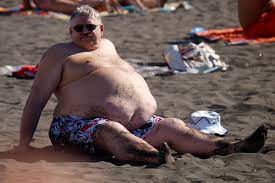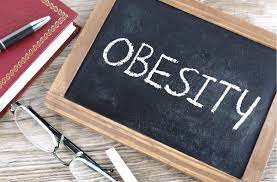How To Lose Weight With Human Growth Hormone
Video Link: https://vimeo.com/181538858
Video Download: How To Lose Weight With Human Growth Hormone
Video Stream: How To Lose Weight With Human Growth Hormone

Losing Weight with HGH a Scientific Study
A new study conducted by the medical department of St. Louis University shows that Human Growth Hormone is likely highly beneficial in aiding obese men and women in the fight to lose weight.
HGH Injections Lead to Weight Loss
Patients who participated in the clinical study were able to drop around five pounds over the course of the study compared to placebo participants.
It seems as though Human Growth Hormone Replacement Therapy is an incredibly useful tool in the fight against obesity and the physical illnesses which occur as a result.
In addition, HGH Treatments also help provide obese patients with the initial energy they need to begin and maintain a healthy exercise program.
The leader of the HGH Hormone Treatment study was medical professor Stewart Albert of the St. Louis Department of Internal Medicine and Endocrinology. To share his discovery with the scientific community, Professor Albert and his department chair Arshag Mooradian traveled to the 2003 ENDO conference, which was the eighty-fifth annual congregation of the Endocrine Society. This conference took place from June nineteenth to twenty-second in Philadelphia, Pennsylvania.
The ENDO conference is the world's largest meeting of Endocrinology professionals and academics. The primary purpose of ENDO is to display advances in Endocrine research that took place in the previous year. This is the Endocrinology community's best opportunity to enhance the level of discourse and provide networking opportunities to advance science.
HGH as an Obesity Cure: Symptoms of Obesity
One of the primary reasons why the results of this study are so important is because of the epidemic level of obesity in American society today. As many as thirty percent of Americans are afflicted with obesity. Perhaps even more alarming, eighteen percent of children aged 12-19 in America suffer from obesity, a stunning increase from just five percent thirty years earlier. Below are some risks associated with obesity:
- High Blood Pressure Obesity makes the heart have to work harder to achieve the normal distribution of blood throughout the body. In addition, issues such as cholesterol blockage in the arteries cause the arteries to become restricted, increasing blood pressure tremendously.
- Type-2 Diabetes This may be the most detrimental long-term affliction associated with obesity. This form of diabetes directly results from obesity and a diet too full of carbohydrates and sugars. The body slowly becomes immune to insulin and can no longer regulate blood-glucose levels without the help of insulin injections. The body slowly begins to atrophy if medication is not prescribed perfectly, and the risk of other afflictions associated with obesity increases significantly even if obesity is eventually resolved.
- High Cholesterol Obesity is directly correlated with elevated triglycerides and unhealthy LDL cholesterol levels. Cholesterol has a nasty habit of clogging up arteries and veins throughout the body, increasing blood pressure, preventing the heart muscle from contracting powerfully, and preventing body areas from obtaining proper oxygen levels.
- Sleep Apnea Obesity causes fatty tissue to obstruct air pathways, making it hard to breathe while in a sleeping position. This leads to poor sleep and, in rare cases, can even lead to suffocation.
- Stroke Strokes result from cholesterol and fatty lesions in the arteries and veins, which clog up blood pathways in the brain. If not discovered immediately, strokes can permanently damage and kill off neurons and brain tissues, leading to limitless potential afflictions dependent upon where the stroke occurs.
- Fatigue Fatigue is the result of many factors of obesity. Excess levels of fat and the overconsumption of sugars and carbohydrates lead to a breakdown
 in the ability of the human body to produce and process Human Growth Hormone. Without sufficient HGH production, the body does not break down fatty tissue and convert it into energy efficiently, which leads to fatigue.
in the ability of the human body to produce and process Human Growth Hormone. Without sufficient HGH production, the body does not break down fatty tissue and convert it into energy efficiently, which leads to fatigue. - Also, fatty tissue has the ability to convert Testosterone into estrogen and other derivatives of the feminine hormone. If Testosterone levels drop, the muscles begin to atrophy as a result. Smaller, weaker muscles are less resistant to exhaustion, and the body loses its ability to withstand muscular stress.
- Gallstones. Gallstones are masses of cholesterol that build up within the gallbladder. These growths can be as small as a rice grain or even as large as a golf ball. Obesity leads to the increased size and the manifestation of gallstones because the body sometimes has issues dealing with the excess cholesterol circulating through the bodies of obese patients.
- Although gallstones can often pass undetected, they can grow large and painful within the body and become lodged. In this case, surgery is often the only option. Gallstones are not extremely dangerous if treated promptly but can lead to debilitating abdominal and/or shoulder pain, vomiting, and nausea.
- Heart Attacks All of the above-stressesincreased blood pressure, an overworked heart, high cholesterol, and clogged arteries all contribute to a high risk of a heart attack. If the heart can't build up enough pressure to circulate blood throughout the body efficiently, or if blood clots or artery-clogging prevent the heart from receiving enough blood to function, then the organ begins to die, which depends upon the severity of the heart attack will significantly reduce the heart's ability to function, or kill off the heart, and therefore the patient, as a result.
Answering Questions about HGH
The primary researcher, Dr. Albert, believes that there is great promise in using HGH Hormone Replacement Therapy as a treatment for obesity. Although he is confident that HGH Shots can be a helpful technique, it is not yet clear to the doctor what the most efficient protocol should be when using HGH for weight loss.
Also, there are questions about whether Human Growth Hormone should be combined with other drugs to maximize weight loss benefits.
Obesity Reduces HGH Secretion
What is clear regarding Dr. Alberts's study is that when individuals suffer from obesity, their Human Growth Hormone production drops significantly. Also, HGH plays a significant role in metabolism and appetite. After Human Growth Hormone is secreted by the pituitary or injected into the bloodstream, the liver converts the molecule into Insulin-like Growth Factor-One. This HGH Derivative plays a central role in the breakdown of adipose fatty tissue, contributing to healthy body weight.
 If weight gain outpaces the effectiveness of Human Growth Hormone in burning fat, then fatty tissue actually has the ability to send messages to the pituitary, preventing it from producing adequate levels of HGH.
If weight gain outpaces the effectiveness of Human Growth Hormone in burning fat, then fatty tissue actually has the ability to send messages to the pituitary, preventing it from producing adequate levels of HGH.
Reduced levels of Human Growth Hormone are directly connected with further fat accumulation and muscle atrophy, significantly increasing the physiological strain induced by physical activity while reducing the benefits of exercise.
Mimicking Healthy HGH Levels
In the St. Louis University study, researchers administered Human Growth Hormone injections to restore blood-serum HGH to levels that would be normal for healthy men or women of an identical height and physiological profile. The researchers divided patients into two distinct groups.
The first group was a control group that was injected with saline solution to mimic the HGH injection process. The second group was given a physiologically appropriate level of Human Growth Hormone. They delivered these HGH and placebo shots every night over the course of six months.
HGH and Weight Loss
In the end, the Human Growth Hormone injections produced significant results. Over the course of the six-month clinical period, patients who underwent HGH Hormone Replacement Therapy lost an average of 5 pounds due to their injections. It should also be noted that all weight loss could be attributed to a reduction in adipose fat. Muscle mass did not deteriorate as a result of HGH Hormone Injections.
Another benefit of HGH Injections was that the weight loss that obese patients achieved was found to be incredibly targeted. The majority of adipose tissue was eliminated from around the midsection. Fat accumulation in the midsection is highly correlated with unfavorable health conditions associated with obesity. According to Dr. Albert, reducing excess fat around the midsection can lead to a lifelong reduction in the risk of heart disease.
HGH Study Parameters
The St. Louis Study involved 39 participants who weighed in at around forty percent overweight, well within the range of obesity. Every patient met with a dietary specialist once a month throughout the course of the study and was motivated to drop the pounds slowly through a mixture of physical activity and dropping their intake of calories by 500 per day.
Although it is clear that Human Growth Hormone Shots caused patients to lose weight faster, the researchers are not sure precisely by what mechanism this weight loss occurred. Dr. Albert says he is not sure whether he should attribute weight loss to a reduction in appetite or, as a result, increasing patients' ability to build muscle mass and exercise effectively. He also posits that weight loss could easily result from a combination of both factors.
Original uses of HGH
Bio-Identical Human Growth Hormone Injections have been used for multiple generations as a treatment for Childhood HGH Deficiency and Idiopathic Short Stature. There is growing interest in the off-label use of Human Growth Hormone as a means to encourage weight loss and muscle building in patients who suffer from Adult Human Growth Hormone Deficiency.
The levels of Human Growth Hormone used in Adult Human Growth Hormone Replacement Therapy are significantly lower than those utilized in treating youth patients. This is because Human Growth Hormone levels peak during puberty.
This is the period in which Human Growth Hormone encourages rapid height development. After this point, the body still produces a significant level of Human Growth Hormone, but not nearly at the same levels as during puberty.
HGH for Hypopituitarism
After the age of thirty, or sometimes earlier in the case of patients who struggle with obesity, endogenous Human Growth Hormone production declines at a rapid pace, and there is a growing body of evidence that suggests a multitude of ways in which this HGH Deficiency affects the body in incredibly damaging ways.
Another aspect of this study that makes it important is that none of the patients who were subject to HGH Hormone Replacement Therapy experienced symptoms that made them decline further treatment. In earlier clinical trials, Doctors often made the mistake of administering doses of HGH that was too high and often resulted in patients who made the decision to stop therapy.
Avoiding HGH Side Effects
The key to valuable and effective Human Growth Hormone Replacement Therapy is that the dose must be low enough to discourage side effects while encouraging positive benefits such as weight loss and muscle development. The most effective way to do this is to determine normal healthy Human  Growth Hormone levels and mimic them as precisely as possible.
Growth Hormone levels and mimic them as precisely as possible.
HGH and Other Weight Loss Factors
Although the benefits of Human Growth Hormone Injection Therapy show immense promise, it is still important to remember that Hormone Replacement would only be one factor in a complete weight loss regimen. Any successful diet therapy will also feature diet restriction, nutrition optimization, and increased physical activity.
An essential rule of thumb is that reducing 500 hundred calories per week through a combination of exercise and dietary restriction will produce weight loss amounting to one pound per week.
The Future of Human Growth Hormone for Weight Loss
HGH Replacement Therapy has the ability to increase weight loss both by reducing appetite and encouraging metabolism. With further study, scientists will learn how to optimize Human Growth Hormone HRT to achieve maximum weight loss results while maintaining overall good health. It's only a matter of time.
- 0001 Xylitol is a Natural, Plant-Sourced and Low-Calorie Sweetener [Last Updated On: January 8th, 2025] [Originally Added On: January 12th, 2021]
- 0002 The Secret Behind Keeping the Weight Off for Good -- No More Losing and Gaining Cycles! [Last Updated On: January 17th, 2025] [Originally Added On: January 13th, 2021]
- 0003 The Cognitive Benefits of Starting a CoQ10 (Coenzyme Q10) Supplement Regimen [Last Updated On: January 12th, 2025] [Originally Added On: January 14th, 2021]
- 0004 It's Time to Understand Why Vitamin C is Critical for Our Health and Longevity! [Last Updated On: January 10th, 2025] [Originally Added On: January 15th, 2021]
- 0005 Snoring is the Most Common Early Symptom of Sleep Apnea -- Do You Suffer From It? [Last Updated On: January 11th, 2025] [Originally Added On: January 16th, 2021]
- 0006 Vitamin-d Longevity Vitamin [Last Updated On: January 2nd, 2025] [Originally Added On: January 17th, 2021]
- 0007 Twenty Simple Weight Loss Tips That Can Change Your Life [Last Updated On: November 14th, 2025] [Originally Added On: January 18th, 2021]
- 0008 Twelve Ways To Control Cravings [Last Updated On: February 22nd, 2025] [Originally Added On: January 19th, 2021]
- 0009 The Truth About The Zone Diet [Last Updated On: November 13th, 2025] [Originally Added On: January 20th, 2021]
- 0010 The Truth About The Schwarzbein Principle [Last Updated On: November 12th, 2025] [Originally Added On: January 21st, 2021]
- 0011 The Truth About The Realage Diet [Last Updated On: November 11th, 2025] [Originally Added On: January 22nd, 2021]
- 0012 The Truth About The Origin Diet [Last Updated On: November 10th, 2025] [Originally Added On: January 23rd, 2021]
- 0013 The Truth About The Eat Right, Live Longer Diet -- Nourishing Food Equals Increased Longevity [Last Updated On: January 31st, 2025] [Originally Added On: January 24th, 2021]
- 0014 The Essential Roles Magnesium Plays For Our Energy Levels, Skin Youthfulness and Mental Health [Last Updated On: January 4th, 2025] [Originally Added On: January 25th, 2021]
- 0015 The Real Skinny On Vitamin B12. What It Can And Cannot Do For You [Last Updated On: March 23rd, 2025] [Originally Added On: January 26th, 2021]
- 0016 The Importance And Purpose Of Stress [Last Updated On: February 18th, 2025] [Originally Added On: January 27th, 2021]
- 0017 The Ideal Balanced Diet The Reality Of Healthy Eating [Last Updated On: November 9th, 2025] [Originally Added On: January 28th, 2021]
- 0018 The Effects Of Cortisol On The Body [Last Updated On: April 27th, 2025] [Originally Added On: January 29th, 2021]
- 0019 Sixteen Common Foods That Increase The Cancer Risk [Last Updated On: November 8th, 2025] [Originally Added On: January 30th, 2021]
- 0020 Should You Consider Intermittent Fasting? [Last Updated On: October 19th, 2025] [Originally Added On: January 31st, 2021]
- 0021 Can Caloric Restriction Help You Lose Weight And Live Longer? [Last Updated On: October 18th, 2025] [Originally Added On: February 1st, 2021]
- 0022 How Does Poor Sleep Rob Vitality And Health? [Last Updated On: October 17th, 2025] [Originally Added On: February 2nd, 2021]
- 0023 Nine More Natural Ways To Relieve Anxiety [Last Updated On: October 16th, 2025] [Originally Added On: February 3rd, 2021]
- 0024 Metabolism Boosting Tips For Losing Weight And Feeling Great [Last Updated On: October 13th, 2025] [Originally Added On: February 4th, 2021]
- 0025 Juicing Pros And Cons [Last Updated On: March 22nd, 2025] [Originally Added On: February 5th, 2021]
- 0026 Insomnia Guide [Last Updated On: October 12th, 2025] [Originally Added On: February 6th, 2021]
- 0027 How Safe Is Monosodium Glutamate AKA Msg? [Last Updated On: October 14th, 2025] [Originally Added On: February 8th, 2021]
- 0028 How Is Sleep Apnea Diagnosed And Treated [Last Updated On: October 9th, 2025] [Originally Added On: February 9th, 2021]
- 0029 Hidden Sources Of Sugar In Common Foods [Last Updated On: October 8th, 2025] [Originally Added On: February 10th, 2021]
- 0030 How Would You Like to Potentially Add 14 Healthy and Youthful Years to Your Life Span? [Last Updated On: October 10th, 2025] [Originally Added On: February 11th, 2021]
- 0031 Four Reasons Why Healthy Sleep Encourages Weight Loss [Last Updated On: October 7th, 2025] [Originally Added On: February 12th, 2021]
- 0032 Omega-3 Fatty Acid Facts And How They Relate To Hormone Replacement Therapy [Last Updated On: April 24th, 2025] [Originally Added On: February 14th, 2021]
- 0033 Drink Right To Live Well [Last Updated On: October 6th, 2025] [Originally Added On: February 15th, 2021]
- 0034 Consumers Of Processed Meat Put Themselves At Risk [Last Updated On: October 5th, 2025] [Originally Added On: February 16th, 2021]
- 0035 Comparing The Same Mass Of Muscle And Fat [Last Updated On: February 19th, 2025] [Originally Added On: February 17th, 2021]
- 0036 Watermelon Health Food? The Benefits Of L-citrulline And Watermelon [Last Updated On: October 4th, 2025] [Originally Added On: February 18th, 2021]
- 0037 Alcohol Appears To Impact Sperm Quality [Last Updated On: October 3rd, 2025] [Originally Added On: February 19th, 2021]
- 0038 The Benefits of Selenium - Should You Take a Selenium Supplement? [Last Updated On: February 9th, 2025] [Originally Added On: April 8th, 2021]
- 0039 Selenium and its Impact on Your Health and Hormones [Last Updated On: March 3rd, 2025] [Originally Added On: April 8th, 2021]
- 0040 Scientifically Proven Benefits Of Turmeric The Indian Spice [Last Updated On: March 18th, 2025] [Originally Added On: April 27th, 2021]
- 0041 Natural Remedies for Heartburn or Acid Reflux [Last Updated On: February 18th, 2025] [Originally Added On: May 22nd, 2021]
- 0042 What the Heck Is a Raisin, Anyway and Why Would I Want to Eat One? [Last Updated On: May 18th, 2025] [Originally Added On: June 10th, 2021]
- 0043 Fat-Focused Diet May Help Boost Testosterone [Last Updated On: February 17th, 2025] [Originally Added On: June 10th, 2021]
- 0044 Chia Seeds: More Than Just a Fad [Last Updated On: April 11th, 2025] [Originally Added On: June 24th, 2021]
- 0045 Intermittent Fasting Boosts Growth Hormone, and Improves Cognitive Health [Last Updated On: March 4th, 2025] [Originally Added On: May 2nd, 2022]
- 0046 Growth Hormone, Nutrition, and Diet Affect Longevity [Last Updated On: February 14th, 2025] [Originally Added On: May 6th, 2022]
- 0047 How Your Health is Affected by Brown and White Fat [Last Updated On: February 14th, 2025] [Originally Added On: May 17th, 2022]
- 0048 Tesamorelin Boosts HGH Levels and Burns Belly Fat [Last Updated On: February 14th, 2025] [Originally Added On: May 21st, 2022]
- 0049 Build Muscle With Tofu - Don't Fear Soy [Last Updated On: November 7th, 2025] [Originally Added On: July 12th, 2022]
- 0050 Balancing HGH Levels with Weekly Sogroya [Last Updated On: November 5th, 2025] [Originally Added On: September 1st, 2022]
- 0051 Pecans Are Amazing [Last Updated On: February 19th, 2025] [Originally Added On: November 22nd, 2022]
- 0052 The Benefits of Fenugreek [Last Updated On: September 5th, 2025] [Originally Added On: November 24th, 2022]
- 0053 The Foods To Eat To Increase Stem Cells [Last Updated On: March 6th, 2025] [Originally Added On: December 7th, 2022]
- 0054 The Versatility of Pecans [Last Updated On: February 19th, 2025] [Originally Added On: February 9th, 2025]
- 0055 Understanding The Concept: A Pound Of Muscle Vs. A Pound Of Fat [Last Updated On: February 19th, 2025] [Originally Added On: February 11th, 2025]
- 0056 The Aging Enigma: Unravelling the Web of Human Growth Hormone Decline [Last Updated On: February 17th, 2025] [Originally Added On: February 12th, 2025]
- 0057 Rekindling the Flame: How a Fat-Friendly Diet Can Ignite Testosterone Levels [Last Updated On: February 14th, 2025] [Originally Added On: February 13th, 2025]
- 0058 Unlocking Your Inner Fountain of Youth: The Magic Elixir of HGH Injections for Women [Last Updated On: February 17th, 2025] [Originally Added On: February 14th, 2025]
- 0059 Effective Strategies for Controlling Cravings [Last Updated On: February 17th, 2025] [Originally Added On: February 17th, 2025]
- 0060 Overview of Hormone Replacement Therapy and the Role of Intermittent Fasting [Last Updated On: February 22nd, 2025] [Originally Added On: February 22nd, 2025]
- 0061 Understanding the Power of Stem Cells [Last Updated On: February 24th, 2025] [Originally Added On: February 24th, 2025]
- 0062 The Role of Selenium in Health and Hormones [Last Updated On: February 26th, 2025] [Originally Added On: February 26th, 2025]
Word Count: 1918






